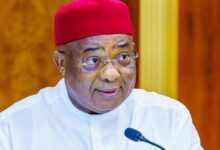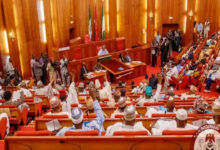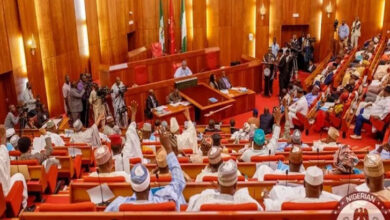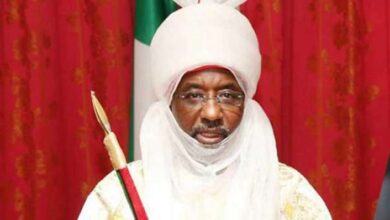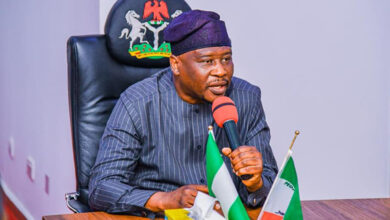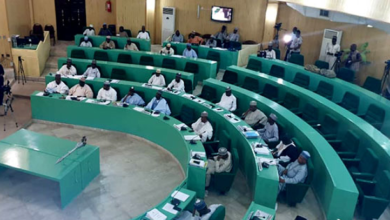Cancellation Of Elections Marred By Violence: Interrogating INEC’s golden rule

Violence is a proven strategy to disrupt the voting process in Nigeria, especially in neighbourhoods that traditionally vie for the opposition. It has worked time and again, and politicians have continued to learn the ropes.
It should be noted that Nigeria has a long history of violence during elections. Sadly, it manifested again in the 2023 general elections and the recent off-cycle elections held in Bayelsa, Imo and Kogi States. In the 2023 general elections, 24 deaths and 238 cases of violence were recorded.
A report by Kimpact Development Initiative (KDI), a nongovernmental organization that advances good governance and democratic rights last week, revealed that the off-cycle governorship election in Imo, Bayelsa and Kogi states recorded over 123 victims of election day violence, even as four people were killed.
According to the organisation, while two people were shot by security agents in a local council in Kogi state for trying to snatch ballot boxes, a National Youth Service Corps (NYSC) member was also killed in Ankpa Local Council Area of the state. One death was recorded in Brass LGA in Bayelsa State during the collation of results.


Alhaji Usman Ododo
In total, about 50 violence cases were reported across Bayelsa, Kogi and Imo States. Imo accounted for the highest number with 19 incidents of violence, while Bayelsa followed closely behind with 17 incidents. Kogi recorded the lowest number of incidents among the three states, with 14 incidents.
What many Nigerians do not know is that there are a lot of political merchants who benefit from these electoral irregularities for different reasons and in different ways. This is because most times, the perpetrators’ main objective is not just to kill or maim, but to disrupt the process that will in turn, perhaps change the outcome of the poll.
Indeed, an aspect of the Electoral Act 2022 and Regulations and Guidelines of the Independent National Electoral Commission (INEC) for the conduct of elections directing the cancellation of results where there is violence is being seriously abused by politicians who see election as a do-or-die affair.
Recall that few days to the November 11 off-season polls, INEC had warned that it won’t count votes in any polling unit where violence occurs. The INEC chair, Prof. Mahmood Yakubu, said this in Yenagoa, Bayelsa State capital, at a meeting with candidates, political parties and other critical stakeholders.
“Where there is violence, it will be zero. We will not return to that polling unit to conduct election” Yakubu, represented by INEC National Commissioner supervising Akwa Ibom, Bayelsa and Rivers states, May Agbamuche-Mbu warned.
But why such rule in the first instance? It is proper to know that the decision to cancel election results where there was violence was to deter future violators. In fact, non-cancellation of elections, which could not hold as expected due to violence in polling units is ordinarily contrary to the Electoral Act 2022.
Although elections may be cancelled in any polling unit where there is a breakdown of law and order or where there is a threat to the lives of voters, electoral officials, or security personnel, INEC is expected to reschedule the election in such affected polling unit to a later date. Interestingly, however, this has to happen with recourse to another clause, the margin of lead principle.
Section 24 (3) of the Electoral Act 2022 states that “Where an election has commenced and there is reason to believe that there is or has been substantial disruption of election in a polling unit or constituency or it is impossible to continue with the election occasioned by threat to peace and security of electoral officials and materials, the Commission shall suspend the election and appoint another date for the continuation of the election or the process.”
Sub section 4 also states that: Where the Commission appoints a substituted date in accordance with subsections (2) and (3), there shall be no return for the election until polling has taken place in the area or areas affected.
But section 24 (5) went further to clarify that: “Notwithstanding subsection (3), the Commission may, if satisfied that the result of the election will not be affected by voting in the area or areas in respect of which substituted dates have been appointed, direct that a return of the election be made”, while (6) noted that “The decision of the Commission under subsection (4) may be challenged by any of the contestants at a court or tribunal of competent jurisdiction and on such challenge, the decision shall be suspended until the matter is determine.”
Unfortunately, what was expected to be an antidote by the commission to tackle electoral violence might have now metamorphosed into a poison.
It is evident from elections conducted so far that politicians deliberately cause violence in the stronghold of their opponents, creating a reason for the electoral umpire to cancel elections in such areas and leaving the opposing candidate at disadvantage.
Efforts by the commission to sanction electoral bad behaviour has clearly paved way for aggressors in the political space to gain upper hand against their opponents. This is because even with the fact that a loser can challenge such results, just few cases in the past had gone the way of the petitioner when it comes to the court upturning election outcome due to evident cases of violence.
Election observers are of the opinion that it is time high time the national assembly looked into that aspect of the law while also ensuring that INEC review its guidelines. They argued that if INEC could find a way to resolve a situation where it could review results if found that its returning officers were forced to make the announcement under duress, the commission, including lawmakers can up with effective measures that won’t allow bad political actors benefits from a good law.
Another argument is that there is no a negligible figure since election is strictly a game of number and every digit is important to measure emergence of political candidates to position of authority. Those who fly this line of reason observed that it would amount to disenfranchising innocent voters who did not mastermind the disruption of the electoral process. It is in this spirit that political pundits warned that “we shouldn’t create another problem while trying to solve one.”
In his intervention, a public affairs analyst, Babajide Kolade-Otitoju, lamented the rate at which ballots were cancelled in recent elections due to violence, describing it as a deliberate act.
He also faulted INEC for not faithfully following its guidelines in some instances.
He said: “Some people will just made up their minds to go and destroy voting somewhere so that at the end of of the day, the opponent who is strong in those areas will be at disadvantage.
“For me, many times too, INEC does not faithfully follow its own regulations. Because, how do you say that, wherever voting is characterized by violence, that results should not be returned from such places and you still find some INEC presiding officers returning results from such places.
“It happened during the offseason elections in 2019 in Kogi, and Bayelsa. They didn’t cancel elections in places that were know violence and ballot box took place. They still returned results from those places. So what do we do about INEC officials that are compromised and fail to faithfully implement their own rules?
“So these are issues that there has to be a way to stop the aggressor from benefiting from violence. They live their own areas, they don’t cause problems there. They go to places where they believe their opponent can win and disrupt the process knowing that your opponent will lose all his potential votes from that area.”
Speaking in an interview with The Guardian, Chairman, Transition Monitoring Group (TMG), Auwal Rafsanjani, said INEC should not be blamed for insisting on cancellation of elections where there is breach of peace.
According to him, rather than focusing on INEC, it is the responsibility of the government to ensure that security agencies are deployed to the polling units to ensure that elections are conducted under a peaceful atmosphere.
Noting that the reason for laws to punish election offenders is to deter future deterrents, he said both perpetrators and enablers must not be spared in trying to arrest the situation.
Rafsanjani said: “It is the inability of the goverment to be serious about punishing those offenders and enablers that is why we have escalation of electoral offenders.
“And again, one of the major deficit we have is that electoral offenders are prosecuted by State Attorney General Now, if the actors in the state are the ones organising these violence, the Attorney General in that state will not prosecute anybody. We need to amend the electoral act to ensure that the federal government has the power to prosecute those offenders so that they won’t be able to run away. So basically for me, there should amendment to ensure that the state will not be the one to prosecute these offenders.
“If there are clear case of violence and intimidation in a polling unit, I think the cancellation of that election will be the way to go. This is because it you don’t do that, the perpetrators will get away and they will be declaring results at gun point. We must not give room for such kind of the thing to happen. This will also ensure that the political parties are serious about warning their supporters against causing trouble.
“That is why I said there must be sufficient punishment for offenders. It is inability of goverment to punish those offenders that allow such to take place in the first instance.”
Senior Non-Resident Fellow, Centre for Democracy and Development (CDD), Professor Adele Jinadu, observed that no manner of electoral reform without political reform will bring the needed changes to the nation’s electoral space.
According to him, Nigeria’s democracy is basically driven by non-democrats whose only intention is to grab power at all cost.
Explaining why politicians sponsor violence during elections, he said: “If you don’t do political reform, then you can’t get anywhere. Even if you have one time of five years tenure and all that, the problem is not that you have two terms or one term, it is that the political parties are behaving in a manner that shows that you they deliberately trying to scuttle democracy in this country. And I think the mass media is also encouraging them by giving them the platform to speak.
“I have seen governors talking in a way that raises concerns about us. So, what is important is that we look at those elements of the political environment which continue to pose serious challenges to the conduct of democracy in this country.
“The political parties themselves are not a mirror of what democracy should be. And they are the ones who are by constitution and arrangements will form governments. So I think the point is that Nigerians need to start making it clear to the political parties that they are the problem. Unfortunately, we keep encouraging them by diverting attention from what they are not doing right, to looking at problems or failures in other institutions of society.
Continuing, the Professor of Political Science added: “Every time you make reform, they find a way of going around it to subvert what reform has been made and we keep that going every cycle of the National Assembly, spending four years trying to amend the Electoral Act. Nigeria is the only country where I know that from one election to another, you keep trying to amend the Electoral Act, and that process goes on for four years almost to the eve of another elections. That is the problem. We have given them too much of a free rein. We must address the issue of political reform and mainly party reform.”
